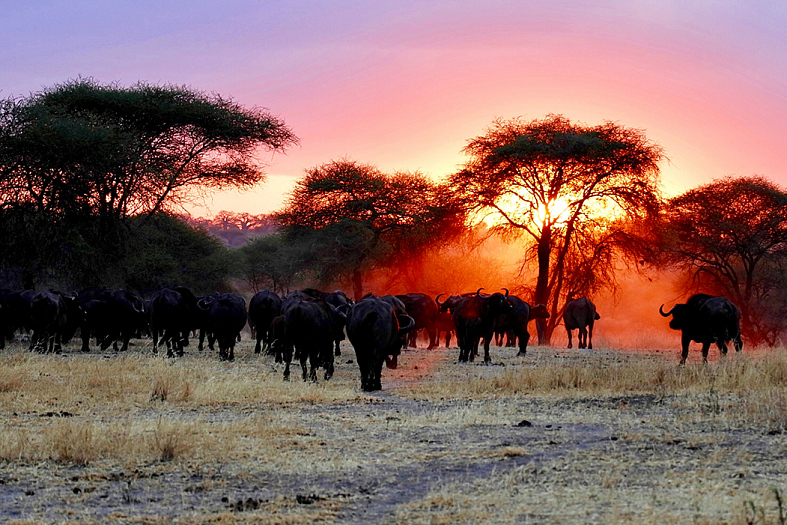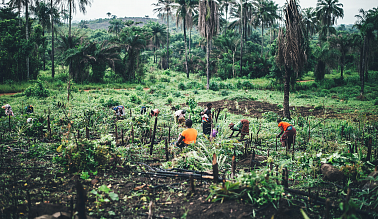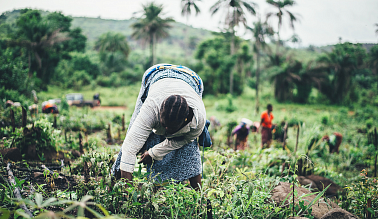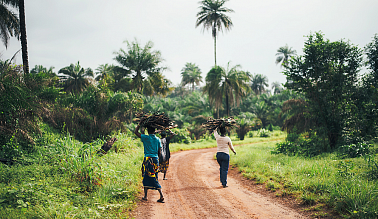African Agriculture in a New Context
13.08.2019 | agriculture
The recent food crisis has led to closer cooperation between different countries and the creation of partnerships to meet common agricultural development and food security goals. This includes providing food, fighting hunger, investing in smallholder farmers, etc. In this framework, we need to make effective use of existing resources, and in this context we want to consider African agriculture. There is a perception that it has a great potential that can, at a minimum, provide the population with vital products. But this will require reconstruction of national agricultural policies, markets and institutions, interaction with other states, infrastructure, etc.
Farming development
Today, smallholder farmers who use obsolete machinery and technology are the main producers of agricultural products in Africa. And it is smallholder farmers who are now being betting on to increase productivity, reduce hunger and influence the environment.
Africa's food systems are being transformed into globally integrated systems that require capital-intensive machinery. Using modern solutions will reduce costs and open up more opportunities for off-farm activities. At the same time, the optimal farm size will increase. This, in turn, may lead to land consolidation, increased commercialization of agriculture, and a decline in agricultural income. Therefore, it is necessary to direct more efforts, programs and plans that will contribute to the development of smallholder farmers' potential, increase their competitiveness and productivity.
Resources
The distribution of water resources in Africa is uneven, i.e. in some regions they are scarce. Accordingly, there is no possibility of intensification of agriculture due to the increase in the number of irrigated areas, more efficient use and storage of water resources. For example, less than 4% of water is used in sub- Saharan Africa and less than a quarter of all lands that are suitable for the production of non-irrigated grains. And savannah conditions with high humidity (up to 90%) allow efficient cultivation of different crops and animals. The experience of other countries, such as Brazil, which has achieved a significant increase in productivity thanks to new technologies (Campos Serrados), could be useful here.
Today, FAO is talking about 700 million hectares of land that are suitable for agriculture without being used. Of course, there is no easy way to come and start producing food efficiently. This will require significant changes, investments, modern technologies that will not cause greater environmental damage.
Innovation
Outdated techniques and technologies used everywhere in Africa are causing considerable damage to farm productivity and the environment as a whole. Again, if we look at sub-Saharan Africa, there is little use of high-yielding crop varieties that are protected from certain pests and weather conditions. At the same time, this number is higher in other regions. This is influenced by the level of knowledge and its dissemination among agricultural workers and infrastructure in general. The solution may lie in the application of conservation agriculture. It is this production technology, taking into account all climatic conditions, infrastructural features, lack of funds and personnel, that can rehabilitate the current situation.
The development of animal husbandry has been greatly facilitated by the increase in the level of knowledge in the field of veterinary medicine, the use of advanced methods in livestock breeding, proper processing and disposal of wastes of their vital functions.
Another area that could become another factor of development is aquaculture. Only technologies should be adequate for local conditions.
Investing
Indeed, investment in Africa is not enough to develop agricultural production. There is also the issue of financing support services that affect the food security of poor and hungry people who depend entirely or partly on agriculture for their livelihoods.
In order to create an enabling environment for investment in Africa, well-functioning organizations are needed that can strengthen and protect the rights of entrepreneurs, minimize their risks, and connect economic actors.
Imports
Many African countries are highly dependent on imported products, especially those that are least developed. This is not a serious problem in itself as long as it is possible to generate income from exports and other sectors. In such a case, it would be possible to pay for imported food products and make them available to the public. Sub-Saharan Africa could increase production to ensure food security for its people.
Climate change
Climate change is having a negative impact on agriculture, including in Africa. Forestry and fish farming are particularly affected by frequent floods and droughts, although they can lead to increased rainfall and improved climatic conditions in other regions.
According to the Intergovernmental Panel's predictions, the yield in sub-Saharan Africa could drop by 50 per cent as early as 2020, as a result of climate change. Therefore, it is already necessary to take into account the impact of the environment on agricultural practices in order to minimize risks.The problem of breeding livestock breeds and crop varieties adapted to climate change is particularly acute. Also, the increase in the level of organic elements in the soil, which will help to reduce soil degradation.




